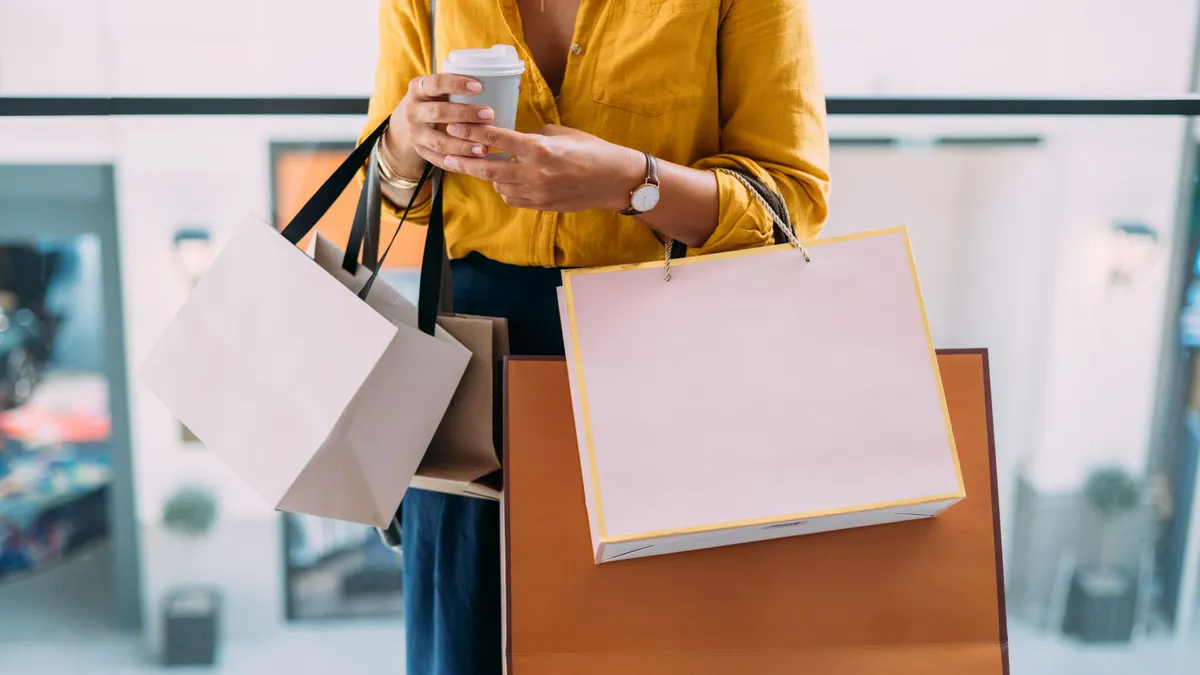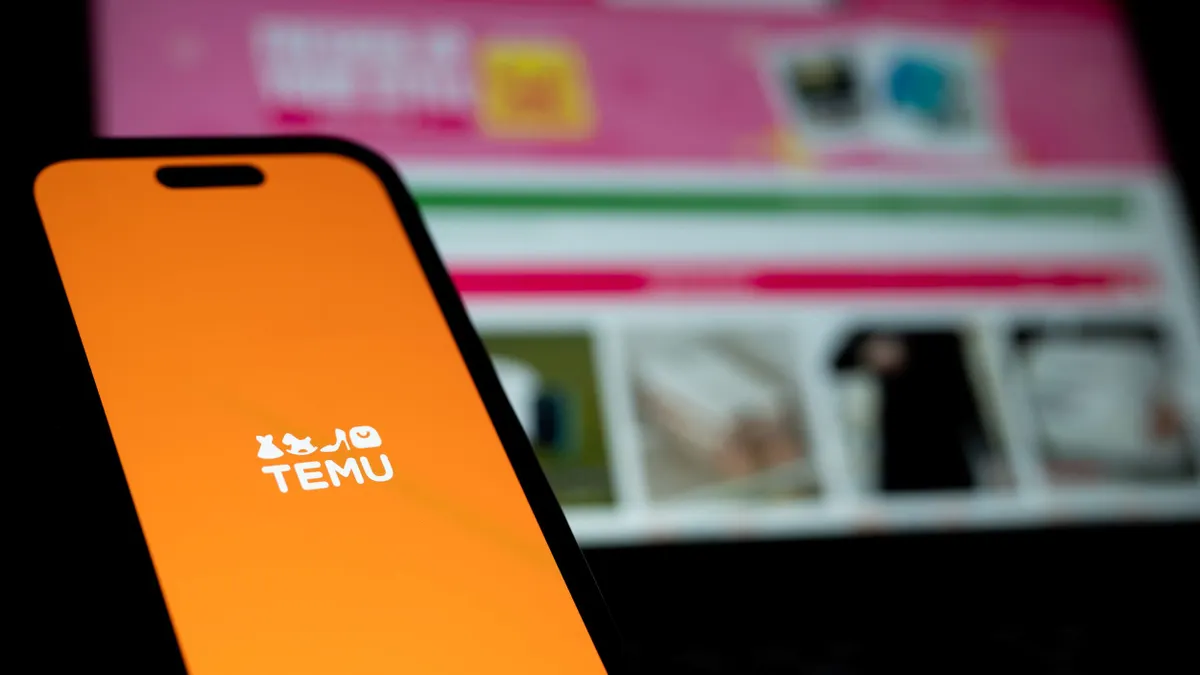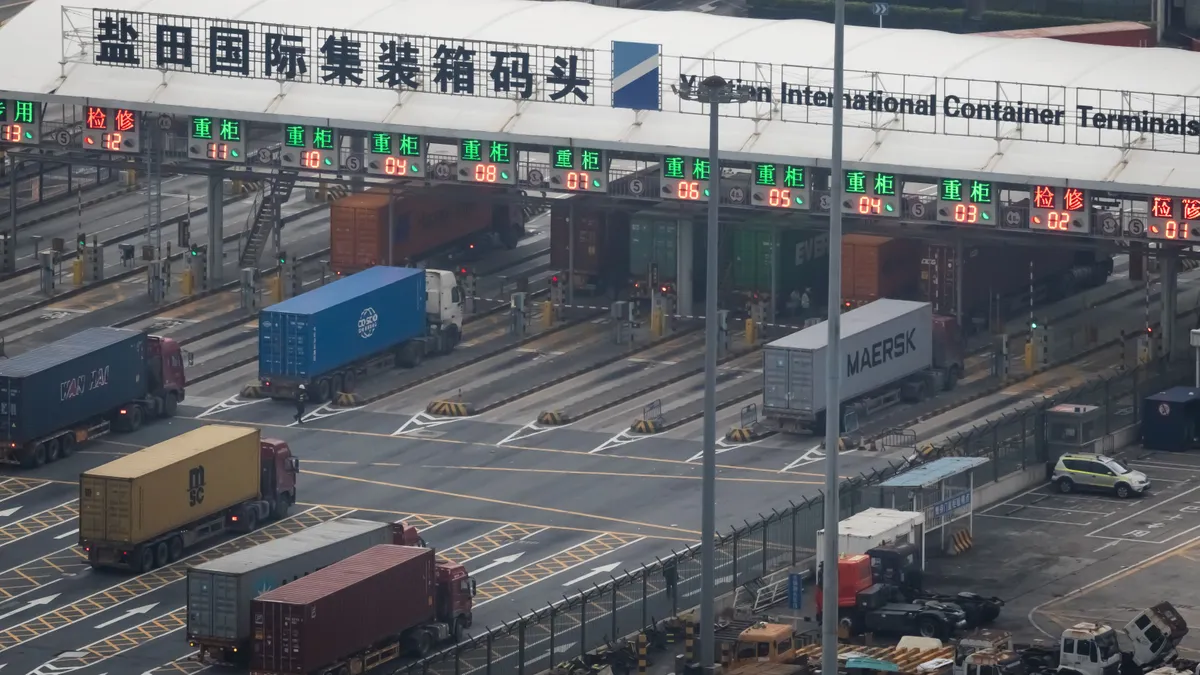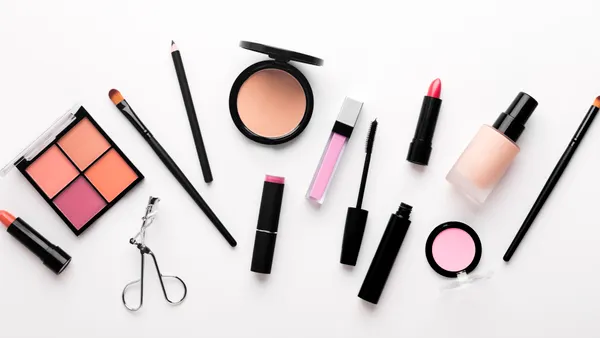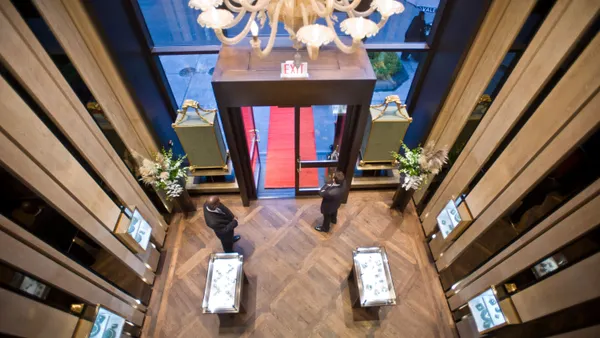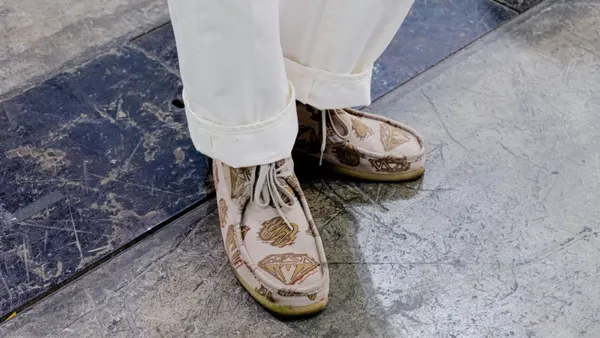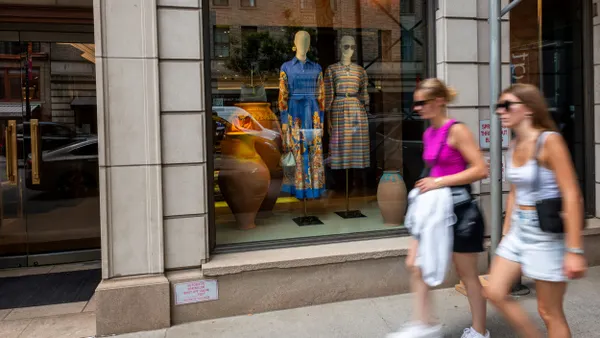Dive Brief:
- Luxury shoppers’ optimism about the economy continues to decline, driven by global financial uncertainty and market volatility, according to the latest Saks Global Luxury Pulse survey that measures consumer spending attitudes.
- The survey, conducted between April 24 and April 28, found that only 28% of respondents reported feeling optimistic about the economy. That represents a 13 percentage point decline since the prior survey fielded in January, and a decline of 17 percentage points compared to last year, per the release.
- Luxury consumers’ top five reasons for concern were the overall social and political climate, a potential recession, financial security, stock market volatility and ongoing global conflict. Tariffs, which the report noted were newly imposed at the time of the survey, ranked sixth.
Dive Insight:
As high-end consumers become more cautious about their luxury purchases, they’re placing greater importance on experiences and on seeking out fashion that inspires them, per the latest survey.
“We also know that the luxury consumer is resilient — they are typically the last in and first out of these moments of uncertainty — and we believe they will embrace luxury shopping as economic conditions improve,” Emily Essner, president and chief commercial officer of Saks Global, said in the release.
Nonetheless, luxury consumers’ intent to spend on luxury hit its lowest level since tracking began in April 2023, with 47% planning to spend the same or more on luxury in the next three months. That represents a decline of 11 percentage points since the previous survey.
Among survey respondents with an annual income of $200,000 or more, 48% said they plan to spend the same or more on luxury over the next three months. That represents a decrease of 15 percentage points compared to prior surveys as well as year over year. It’s the sharpest decline in spending intentions among income groups the firm surveyed.
Heightened macroeconomic uncertainty has also led luxury consumers overall to feel “significantly less calm about the economy.” The survey noted that 32% reported feeling calm, representing a decline of 13 percentage points since the last survey, and down 22 percentage points since last year.
Financial security rose three percentage points as a top priority among respondents compared to the previous survey.
In terms of resilience, luxury consumers expressed a willingness to increase their luxury spending plans based on both macroeconomic and lifestyle factors.
However, among respondents who said they planned to spend the same or less on luxury in the next three months, significantly more said “they would need to see an improvement in the overall economy or an increase in their investments” compared to prior surveys.
Other leading factors that luxury consumers said could entice them to spend more included an enticing sale or promotional event, an increase in income or an unexpected special occasion.
The Saks Global Luxury Pulse survey analyzed responses from 1,248 U.S.-based luxury consumers over age 18. The report was previously called the Saks Luxury Pulse, but after Saks Global acquired Neiman Marcus and Bergdorf Goodman, the survey’s scope broadened and was rebranded as the Saks Global Luxury Pulse, per the release.



